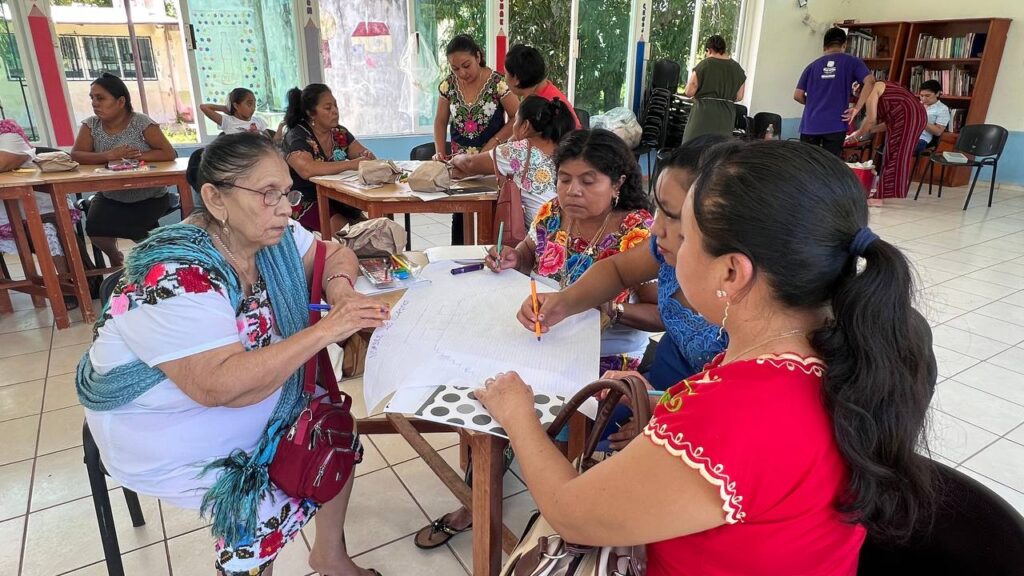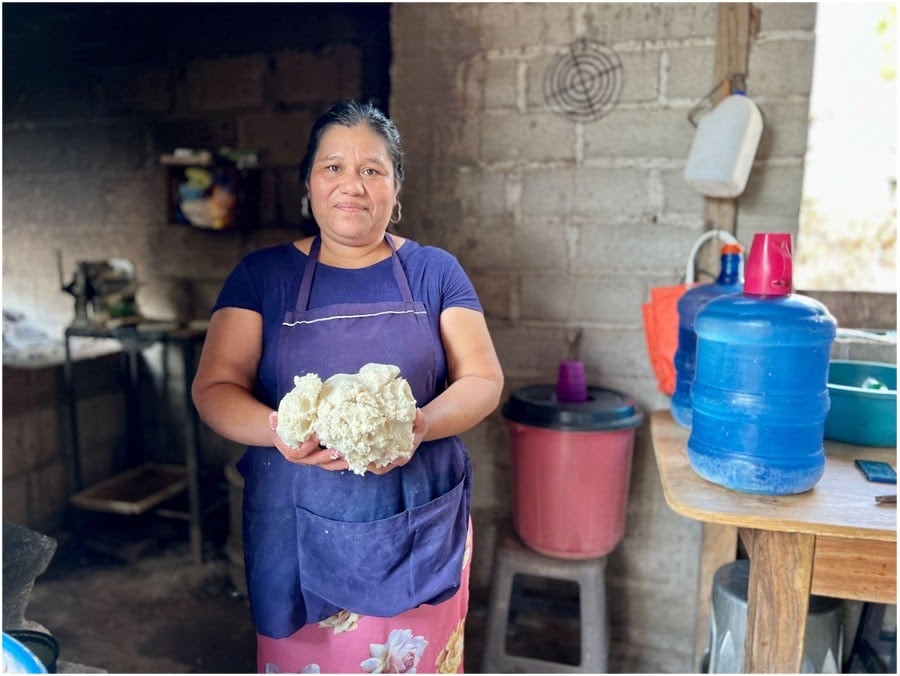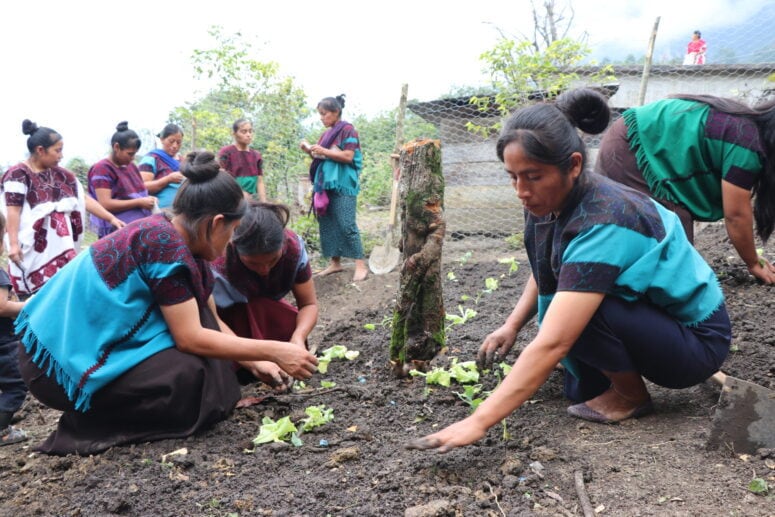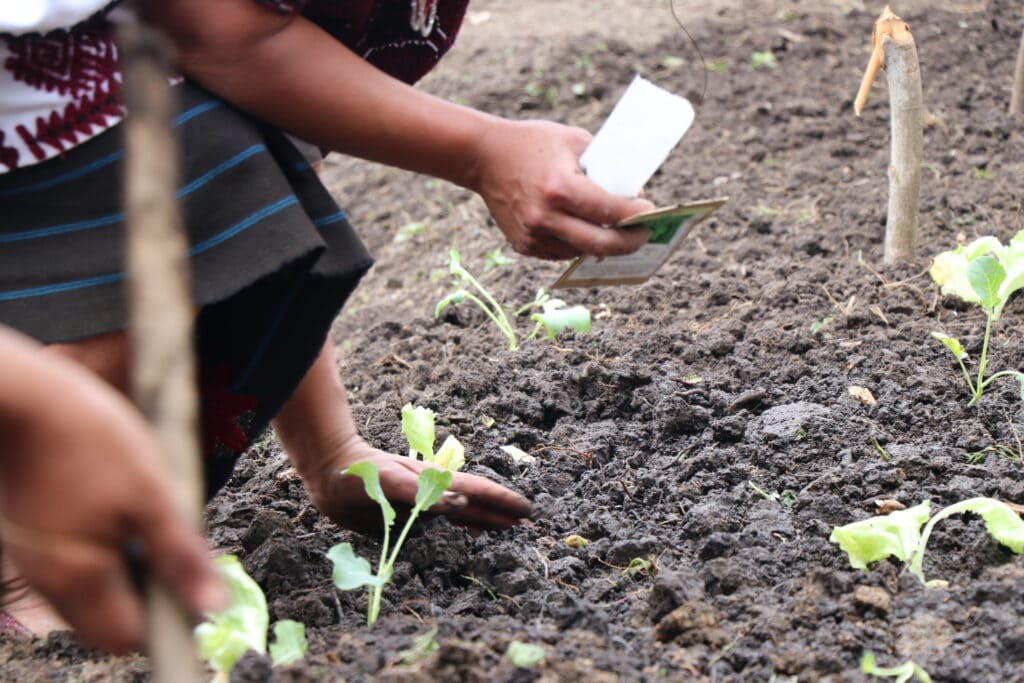In partnership with Indigenous communities in Chiapas and Oaxaca, Mexico, we launched a holistic initiative to address nutrition and food security across the region.
In the highlands of Mexico, where diverse and rich Indigenous cultures flourish, there is a pressing challenge. In 2021, more than 1 in 4 people grappled with chronic hunger, a harsh reality predominantly faced by rural Indigenous communities who have limited access to clean water, healthcare and sustainable livelihoods.
We are actively working with community partners to address these challenges by elevating and celebrating Indigenous knowledge and cultural practices. One way we are doing this is by working with communities to localize EatWell plates, similar to the Nutrition Pyramid used in the United States.
The Traditional Regional Plate project has three interconnected goals:
1. Identify Nutrient-Rich Local Crops
In a participatory, community-led study, we identified nutrient-rich local recipes and traditional crops that have a high protein content. Native to the region, traditional herbs such hierba mora and chipilin have high nutritional value and are resilient to climate changes. These crops are rich in essential vitamins, minerals and proteins that help combat malnutrition. We work with Indigenous farmers to safeguard traditional practices and crops, preserving not only the biodiversity of the region but also their cultural and culinary significance.
2. Preserve Indigenous Agricultural Knowledge
From October 2022 to November 2023, local leaders underwent training in farming, seed-saving, agroforestry and fish farming. An advisory group, driven by Tsotsil-speaking leaders, disseminated knowledge to community members on nutrition and agroecological techniques. The group championed traditional, nutrient-dense plates, utilizing local crops and protein-rich sources. Additionally, a community seed fair facilitated the exchange of experiences and seeds between local farmers in various communities, contributing to the conversation of agricultural biodiversity. This is important because diverse crops help in adapting to changing environmental conditions. Additionally, seed saving and seed banking activities preserve and pass on valuable knowledge from one generation to the next, elevating the voices of Indigenous communities.

3. Adopt Traditional & Regional Recipes
Based on our research study and food education initiatives, in partnership with community leaders, we crafted recipe guides in Tsotsil to promote a lasting culinary legacy. Two plates, or nutritional guides, emerged, promoting the consumption of nutrient sense, locally sourced foods. In an effort to enhance access to these foods, we worked with the community to establish 11 tilapia ponds, four seed houses and six community demonstration plots, engaging 162 community members in agroecological, leadership and mentorship training.

Celebrate Cultural Heritage
As we continue to build upon the success of the Chiapas Traditional Regional Plate project, we reflect on the journey we’ve undertaken. It’s not just about food; it’s about empowerment, partnership and the celebration of cultural heritage. Together with our partners, we’ve planted seeds of change that we hope will continue to grow and sustainably nourish the Indigenous communities of the Chiapas.
Invest in Indigenous Communities.
Learn about our work in Mexico.
Image (top to bottom): Women planting indigenous seeds in Chiapas; A close up image of nutrient dense herbs being grown in Chiapas; A group of women doing a training on nutrition and agroecology techniques in Chiapas; A woman holding a homemade dough in her kitchen in Oaxaca; All photos were taken in Mexico in 2023; Photos for The Hunger Project


